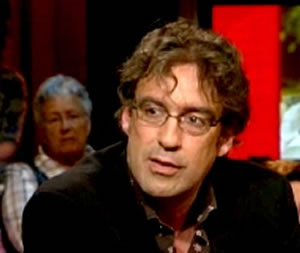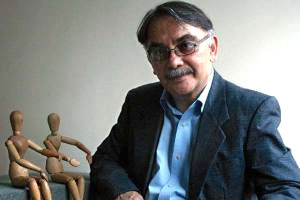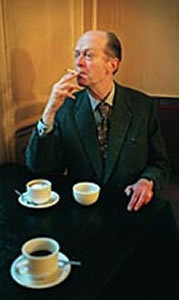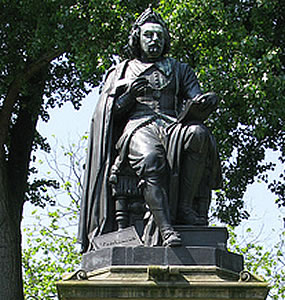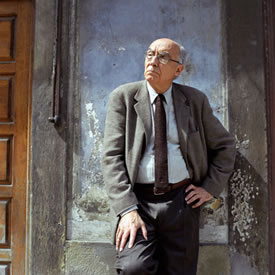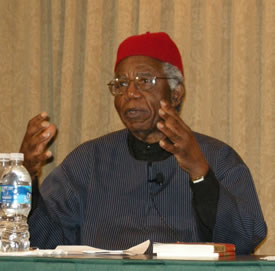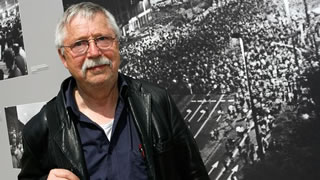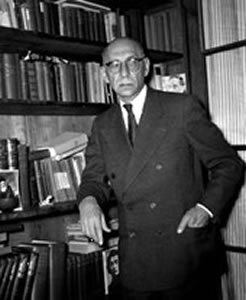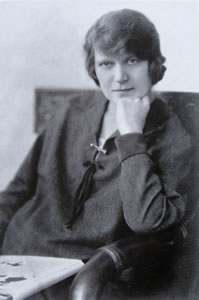De Amerikaanse dichter Alan Tate werd geboren op 19 november 1899 in de buurt van Winchester, Kentucky. Zie ook alle tags voor Alan Tate op dit blog.
Light
Last night I fled until I came
To streets where leaking casements dripped
Stale lamplight from the corpse of flame;
A nervous window bled.
The moon swagged in the air.
Out of the mist a girl tossed
Spittle of song; a hoarse light
Spattered the fog with heavy hair.
Damp bells in a remote tower
Sharply released the throat of God,
I leaned to the erect night
Dead as stiff turf in winter sod.
Then with the careless energy
Of a dream, the forward curse
Of a cold particular eye
In the headlong hearse.
The Cross
There is a place that some men know,
I cannot see the whole of it
Nor how I came there. Long ago
Flame burst out of a secret pit
Crushing the world with such a light
The day-sky fell to moonless black,
The kingly sun to hateful night
For those, once seeing, turning back:
For love so hates mortality
Which is the providence of life
She will not let it blessed be
But curses it with mortal strife,
Until beside the blinding rood
Within that world-destroying pit
-Like young wolves that have tasted blood,
Of death, men taste no more of it.
So blind, in so severe a place
(All life before in the black grave)
The last alternatives they face
Of life, without the life to save,
Being from all salvation weaned-
A stag charged both at heel and head:
Who would come back is turned a fiend
Instructed by the fiery dead.
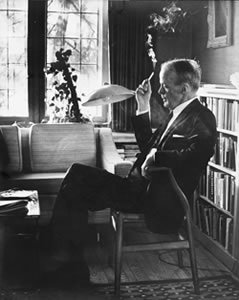
Allen Tate (19 november 1899 – 9 februari 1979)

